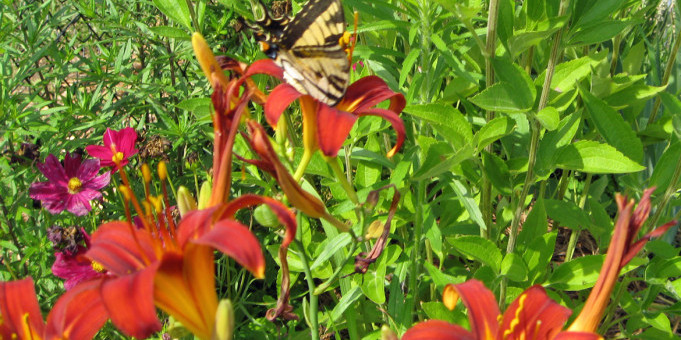After a long Newton England winter, what a cheer it is to see the flowers bloom and hear the birds sing their songs as the world around us springs to life again. We take the natural world around us for granted, but it’s important to remember how fragile it can be when it clashes with the great American desire for manicured lawns and ‘weed’ free landscapes. Below are some resources to nudge you away from pesticides and towards native plantings to help our critter friends and ourselves.
- What To Know Before You Hire a Landscaper or Pest Control Professional
- Pesticides 101: Why you can no longer wait to provide a safer and healthier landscape from both an environmental and human health perspective
Presenter Chip Osborne is well known to many people in Marblehead as the Chairman of the Marblehead Recreation and Parks Commission. He is also the president of Osborne Organics, a company he founded to support and educate the land care industry and public sector in alternative approaches to turf management. He blends science with hands-on experience to create safe, sustainable and healthy athletic fields and landscapes that do not involve the use of synthetic pesticides and chemical based fertilizers. - Friends of Cold Spring Park tells us that we can do a lot to save native bees in our parks, conservation lands and our yards. The biggest simple steps: find alternatives to pesticides, and more bee-friendly native plants. Will we step up? Read Plant a Bumblebee-Friendly Garden


Recently on Twitter